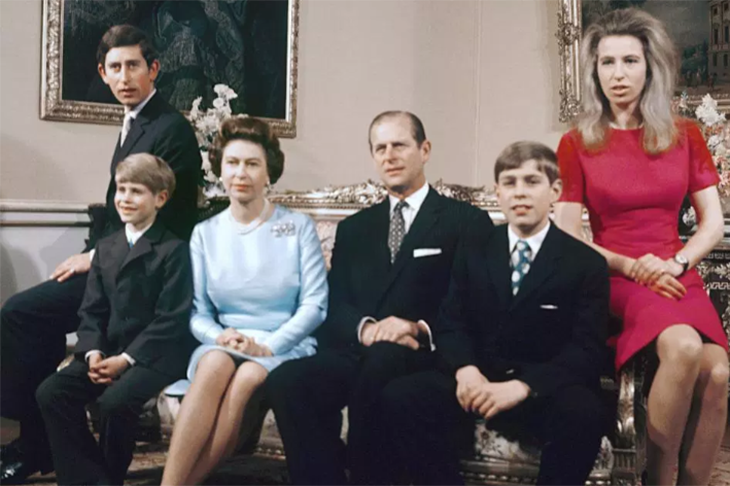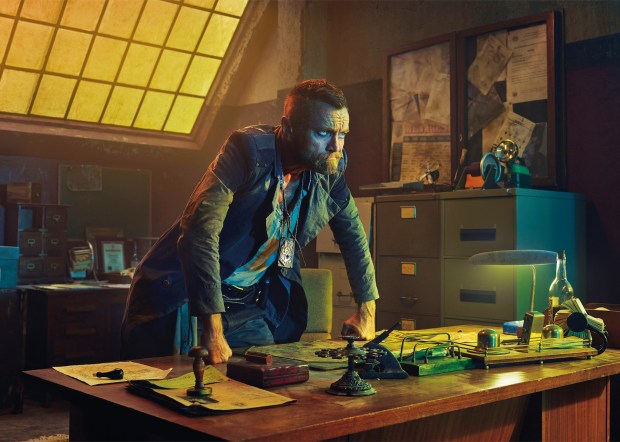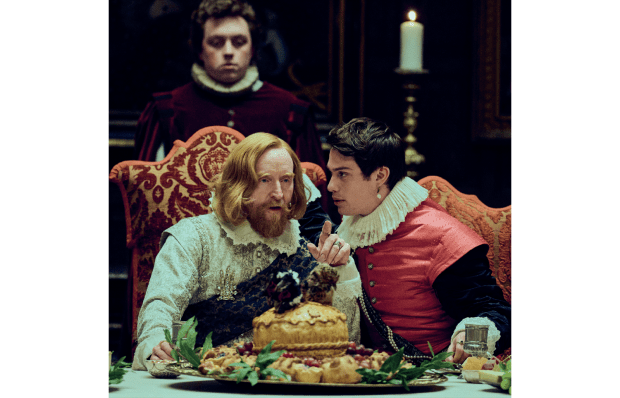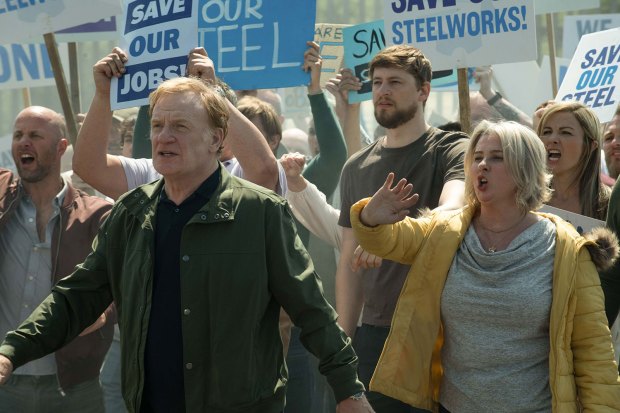You might well expect a royal documentary on Channel 5 to be unashamedly gossipy. You might also expect it to go for the simultaneous possession and eating of cake — lamenting the endless scrutiny the poor Windsors are subject to, while adding a fair amount of its own. What you mightn’t expect, however, is for the presenter to be Jeremy Paxman.
But in Paxman On The Queen’s Children all three things are true. Stranger still, the result is undeniably enjoyable, thanks largely to Paxo himself, who comes across rather as Robert De Niro did in films like Meet the Fockers: as a man who, after decades of the serious stuff, is visibly having fun slumming it for a while.
In Tuesday’s first episode, which reached the annus horribilis of 1992, Paxman began by solemnly pointing out that ‘To be royal is to be watched from the moment you’re born.’ And to prove it, he then got down to the main business of watching Charles, Anne, Andrew and Edward from the moment they were born. His thesis — if that’s not too grand a word for what was essentially a romp through the Windsors’ greatest hits and misses — is that early in the Queen’s reign, the Palace made a fateful decision. To retain the postwar good will towards the Royals, the family would place her children in the public eye so as to charm us all. The trouble was that for this plan to work, they needed to make no mistakes in the course of their lives.
Throughout the programme, Paxman did a fine job of reminding us just how weird being royal is. Most people, for example, don’t have their higher education mapped out by the prime minister, the Archbishop of Canterbury and Lord Louis Mountbatten at a parental dinner party. But that’s what happened to Charles, when it was decided that ‘this not particularly talented young man’, as Paxo characteristically put it, should go to Trinity, Cambridge — where his friends were carefully chosen by the college’s master, Rab Butler. Meanwhile, he spent his vacations taking part in such activities as being invested as Prince of Wales (a ‘ridiculous ceremony,’ noted Paxo in scornful passing).
When it came to the young Anne, the gossip was markedly juicier, with a firm suggestion that she was something of a goer, whose interest was once piqued by Andrew Parker Bowles. We also got a handy guide to Prince Andrew’s years as a heart-throb, complete with a love song in his honour recorded by the 14-year-old Coleen Nolan — which, after he’d listened to it, caused Paxo to set a new PB for lip-curling.
But then along came Diana and Fergie, who, according to Paxman, ‘were box office, but disrupted the family dynamic’. Unfortunately, they didn’t do much for the programme either because once they’d arrived the material inevitably took a turn for the well-worn, with toes sucked and Taj Mahals sat forlornly in front of. Still, even here there was entertainment to be had from seeing Paxo’s trademark expression of amused incredulity cranked up to ever-new heights. In a particularly odd moment, he also played a clip of himself on Newsnight after Charles and Diana’s separation was announced, where his accent was noticeably posher — and where the overall effect was as if the Fockers had settled down to watch a DVD of Raging Bull.
The acclaimed 1981 German film Das Boot, about a wartime U-boat crew, has now earned itself an ambitious, big-budget, trilingual sequel on Sky Atlantic (Wednesday). TV’s Das Boot is set a year later, when the Allies had cracked the Enigma code and German U-boats were losing their dominance. Nonetheless, the biggest difference from the film is that much of the action takes place on dry land.
Happily, that still leaves plenty of claustrophobic scenes in which people bellow ‘Rig the buoyancy vents!’ and ‘Fifteen degrees down on the bow planes!’ in German. But this is now interspersed with life back at the naval base of La Rochelle where the sister of one of the submariners is a translator who finds herself tangled up with the French resistance.
Both sides of the story are deftly done, with the stark differences between their cinematography emphasising how isolated from the world those submariners are. The atmosphere of menace is impressively unrelenting and there are lots of sharp details that even the most assiduous war buff might not have considered before.
All of which only goes to show how spoilt we’ve become when it comes to TV drama because I’m fairly sure that ten years ago, I’d have been raving unreservedly about what an astonishing piece of television Das Boot is. These days, though, it feels like just another perfectly good series: a solid piece of story-telling that belongs in the category of ‘well worth watching’ rather than of ‘unmissable’.
Got something to add? Join the discussion and comment below.
Get 10 issues for just $10
Subscribe to The Spectator Australia today for the next 10 magazine issues, plus full online access, for just $10.
You might disagree with half of it, but you’ll enjoy reading all of it. Try your first month for free, then just $2 a week for the remainder of your first year.














Comments
Don't miss out
Join the conversation with other Spectator Australia readers. Subscribe to leave a comment.
SUBSCRIBEAlready a subscriber? Log in